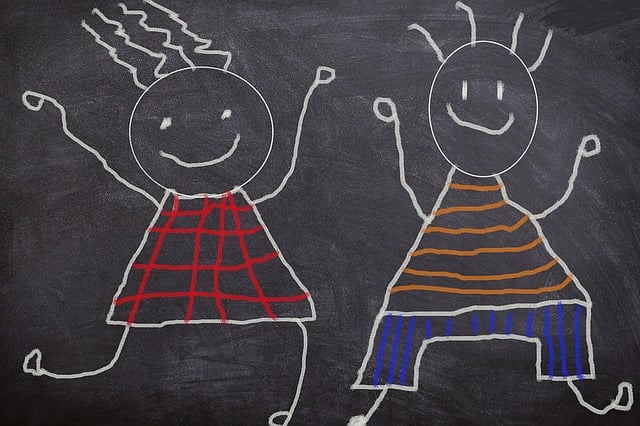The Agape Boarding School, operational from the 1960s to 2000s in South Carolina, USA, promised education and spiritual guidance but became a site of severe abuse for its mainly child and adolescent residents. Allegations of physical, sexual, and emotional misconduct by staff caused profound and lasting harm to survivors, impacting their mental health, interpersonal relationships, and overall well-being. Survivors often grapple with complex trauma, isolation, and shame, hindering their ability to seek support or access justice due to limited documentation, fear of retaliation, and financial constraints. Advocating for justice through support groups, therapy sessions, and legal action is crucial for healing and closure, holding the institution accountable and bringing systemic issues to light while seeking financial relief and deterring future abuse.
“In the quest for justice, survivors of Agape Boarding School abuse have endured a long and arduous journey. This article delves into the historical context of this controversial institution and its lasting impact on its former students. We explore the emotional, psychological, and legal struggles faced by these brave individuals, highlighting their resilience in the face of adversity. Furthermore, we advocate for potential steps towards healing and compensation, shedding light on the importance of recognizing and addressing past injustices related to Agape Boarding School abuse.”
- Understanding the Historical Context of Agape Boarding School and its Impact on Survivors
- The Struggles Faced by Survivors: Emotional, Psychological, and Legal Challenges
- Advocating for Justice: Possible Steps Towards Healing and Compensation for Agape Boarding School Survivors
Understanding the Historical Context of Agape Boarding School and its Impact on Survivors

The Agape Boarding School, operating from the 1960s to the 2000s, was a facility that promised education and spiritual guidance but instead became a site of severe abuse for its residents, mainly children and adolescents. Located in South Carolina, USA, the school’s history is marred by allegations of physical, sexual, and emotional misconduct by its staff against the vulnerable students entrusted to their care. This institution, like many others during that era, espoused religious values and discipline as a means of shaping young minds, but its approach was anything but beneficial for those who endured it.
The impact of the Agape Boarding School abuse on survivors has been profound and long-lasting. Many former students have come forward with harrowing stories of routine violence, non-consensual sexual acts, and psychological manipulation. These experiences have left deep scars, affecting their mental health, interpersonal relationships, and overall well-being. Understanding the historical context is crucial in recognizing the systemic failure to protect these individuals and the ongoing need for justice and healing for Agape Boarding School abuse survivors.
The Struggles Faced by Survivors: Emotional, Psychological, and Legal Challenges

Survivors of abuse at Agape Boarding School often find themselves navigating a complex web of emotional and psychological scars. The trauma experienced during their time at the school can lead to long-lasting mental health issues, including depression, anxiety, and post-traumatic stress disorder (PTSD). Many survivors struggle with feelings of isolation and shame, making it challenging for them to open up about their experiences and seek support. This silence can prolong the healing process and hinder their ability to access justice.
On top of these emotional challenges, Agape Boarding School abuse survivors frequently encounter legal hurdles when pursuing justice. Limited documentation of the abuses, fear of retaliation, and financial constraints can deter them from reporting the crimes or pressing charges. Moreover, navigating the legal system can be overwhelming, especially for those who have not previously interacted with law enforcement. These barriers underscore the need for comprehensive support systems that address both the psychological and legal aspects of their journey towards healing and justice.
Advocating for Justice: Possible Steps Towards Healing and Compensation for Agape Boarding School Survivors

Advocating for justice is a crucial step towards healing and closure for survivors of Agape Boarding School abuse. Survivors deserve recognition, support, and compensation for their traumatic experiences. One significant step is organizing and amplifying survivor stories through support groups, therapy sessions, and legal actions. By sharing their narratives, survivors can hold the institution accountable and create awareness about the systemic issues within the school. This process allows for collective healing and ensures that other potential victims are not overlooked or silenced.
Furthermore, legal avenues offer a means to seek justice and gain compensation. Survivors can take proactive measures by consulting legal professionals specializing in abuse cases. Building a strong case with compelling evidence can lead to successful lawsuits against the responsible parties. Compensation can provide financial relief, acknowledging the severity of the trauma endured. It also serves as a powerful deterrent for future institutions to uphold higher standards of care and respect for their students.
The legacy of Agape Boarding School abuse continues to resonate deeply, demanding attention and action. Understanding the historical context and its profound impact on survivors is a crucial first step towards healing. By recognizing the emotional, psychological, and legal struggles faced by those affected, we can advocate for justice and compensation, ensuring that the experiences of Agape Boarding School survivors are validated and their voices heard. It’s time to take concrete steps towards accountability and provide a path to closure for all involved.
